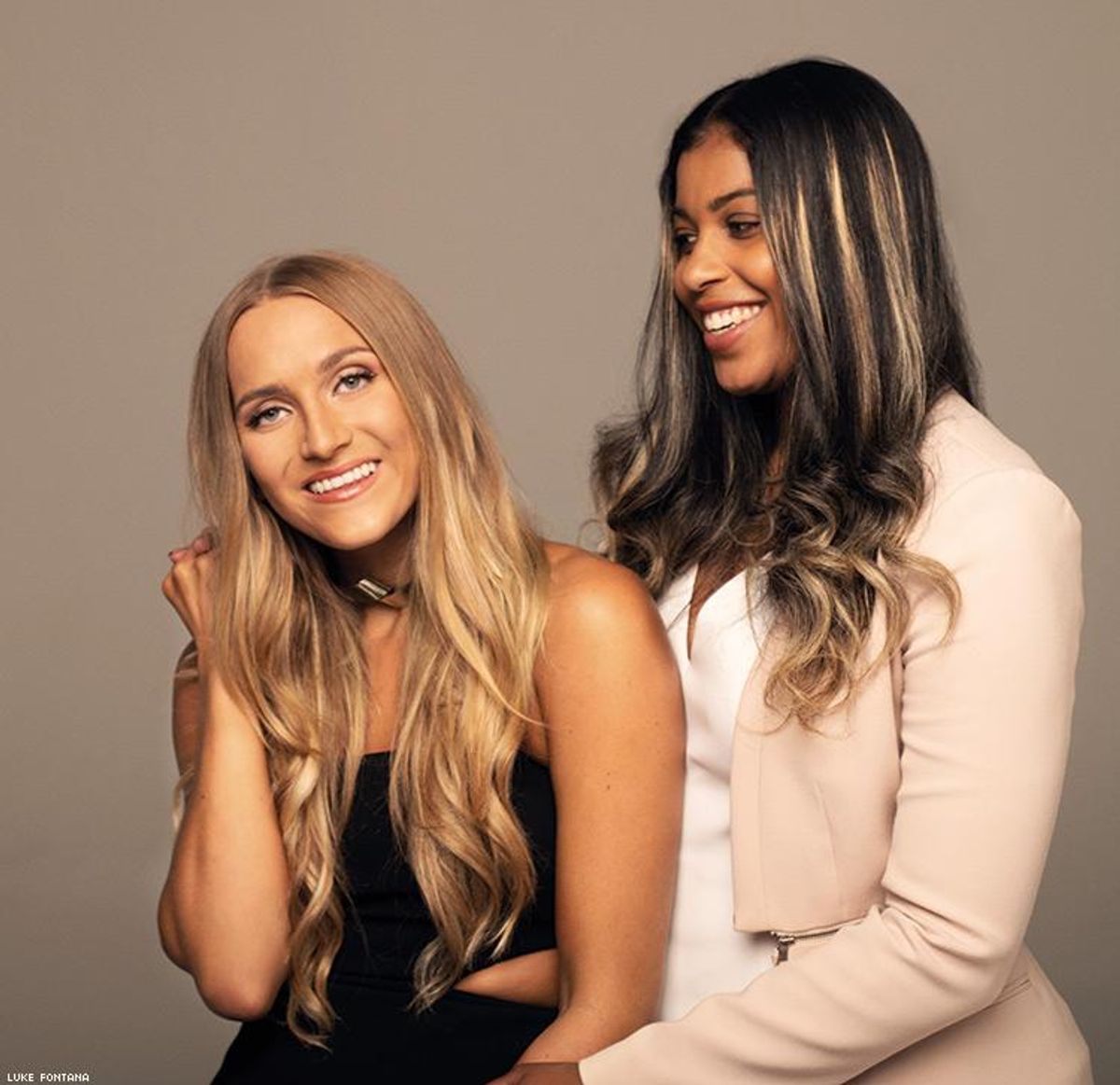Haley Videckis and Layana White first met on a basketball court while playing for opposing PAC-12 teams, but the pair would go on to make history as a couple in a California courtroom.
The story of this interracial-pansexual duo was covered in the documentary Alone in the Game -- a saga of love, perseverance, and ultimate victory against bigotry and discrimination. The two began as star basketball players on opposing teams, but became teammates, friends, and eventually a couple after transferring to Pepperdine University. The only problem was that Pepperdine is a private university affiliated with the Churches of Christ.
"It was interesting because we were at a school where it wasn't accepted, and we had to keep things very quiet and secretive, which is an interesting component when you're falling in love with someone," says Videckis of the beginnings of their relationship. "We had such a deep, deep connection."
The pair lends some credence to the belief that opposites attract. White is of mixed-race heritage -- her father is black and her mother is a white Australian who emigrated from her native country at 16. White was born in Lancaster, Calif., but didn't stay in one place for very long. "I didn't really have a stable life," says White. "We moved around a lot."
Videckis hails from Chicago and is half German-Irish from her mom's side, and Lithuanian from her dad's side. Being a couple in the closet was difficult, especially as student athletes at a Christian university, but in retrospect, it was not without its moments of unintended humor. Both Videckis and White had to attend a formal dance for athletes at the school, and their dates were, of course, men.
"It felt so terrible," remembers White with a laugh. "I actually ended up ditching the guy at some point. I felt really bad for him."

Some teammates and friends knew, but the couple did their best to hide the relationship from staff and administration out of a fear of retribution. They were right to be afraid. Their secret was eventually discovered, and suddenly what had been something special was attacked as contrary to the values of their school and detrimental to the team. While the couple expected a homophobic pushback, they didn't expect the sexist undertones as well.
"There's a stereotype maybe that women can't keep their business to themselves," observed White, noting their coach never made similar vitriolic speeches to the men's teams about same-sex relationships among teammates. "Our coach made an assumption and he just plays off the stereotypes of women in basketball. It was shocking to me."
Their struggle for justice has not been entirely easy. The pressure became so great that White, sadly not unlike many other LGBTQ youth in similar situations, attempted suicide. It was a trying time for both, as there was nowhere on campus they could turn for help.
"At Pepperdine, I didn't have anything," says White. "All I had was Haley at the time, but we were both going through the same things, and I didn't really have a safe space to go and talk about what was going on. I had to keep it inside the entire time and that just tore me down."
Videckis adds that the experience "really put into perspective for me what is important in life."
The couple survived this difficult period, drawing strength from their love for each other as well as from the community. They eventually transferred and filed suit against the university. They lost the case, but in losing they scored major victories for the rights of LGBTQ students.

The court ruled that sexual orientation discrimination is covered by Title IX, a law that protects students from sex-based discrimination in education. As a result, Pepperdine withdrew its exceptions, allowing an LGBTQ club to form on campus for the first time (something that had been repeatedly denied for years) and established a diversity board within the athletics department.
Both White and Videckis have embraced their new positions as role models for the community, especially student athletes in high school and college.
"I think we're definitely ready to handle helping other people because it does take a certain kind of toughness and greatness to deal with these issues," says White.
Whether by working to establish resource centers on campus specifically focused on the unique needs and difficulties faced by student athletes, or simply by telling their own stories, White and Videckis hope to prevent the isolation and feelings of hopelessness many feel while coming to terms with their sexual orientation in the oppressively heteronormative environment of school athletics programs.
In the process, they hope to prevent the type of hate and bigotry that has taken so many lives. Both White and Videckis are preparing for the upcoming LSAT tests, and plan on becoming lawyers focusing on issues in the LGBTQ community.
As for the all-important question of who wins in a straight one-on-one matchup on the basketball court?
"Me," says White, laughing.
"No way," Videckis quickly replies.
Photography by Luke Fontana
Photo assistant Dillon Matthew
Glam Calvin Scott
Glam Blondie for Exclusive Artists, using MAC Cosmetics
Stylist Aisha Rae
Assistant stylist Angel Cross





















































































